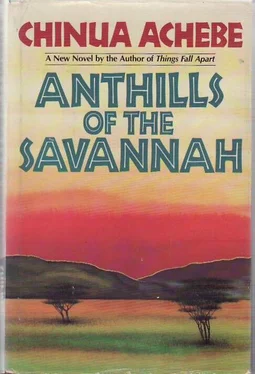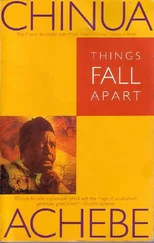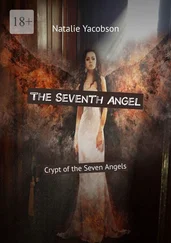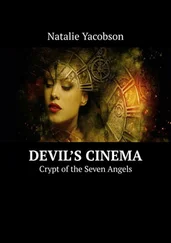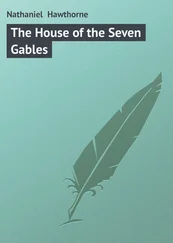Chinua Achebe - Anthills of the Savannah
Здесь есть возможность читать онлайн «Chinua Achebe - Anthills of the Savannah» весь текст электронной книги совершенно бесплатно (целиком полную версию без сокращений). В некоторых случаях можно слушать аудио, скачать через торрент в формате fb2 и присутствует краткое содержание. Жанр: Проза, на английском языке. Описание произведения, (предисловие) а так же отзывы посетителей доступны на портале библиотеки ЛибКат.
- Название:Anthills of the Savannah
- Автор:
- Жанр:
- Год:неизвестен
- ISBN:нет данных
- Рейтинг книги:4 / 5. Голосов: 1
-
Избранное:Добавить в избранное
- Отзывы:
-
Ваша оценка:
- 80
- 1
- 2
- 3
- 4
- 5
Anthills of the Savannah: краткое содержание, описание и аннотация
Предлагаем к чтению аннотацию, описание, краткое содержание или предисловие (зависит от того, что написал сам автор книги «Anthills of the Savannah»). Если вы не нашли необходимую информацию о книге — напишите в комментариях, мы постараемся отыскать её.
Anthills of the Savannah — читать онлайн бесплатно полную книгу (весь текст) целиком
Ниже представлен текст книги, разбитый по страницам. Система сохранения места последней прочитанной страницы, позволяет с удобством читать онлайн бесплатно книгу «Anthills of the Savannah», без необходимости каждый раз заново искать на чём Вы остановились. Поставьте закладку, и сможете в любой момент перейти на страницу, на которой закончили чтение.
Интервал:
Закладка:
But something had happened not so long ago to change our lives and, on this particular Saturday, Agatha must have been so overcome by the sheer power of something else quite extraordinary happening in the house that she set the law of the Sabbath aside and put away the meat, already a little high, and the wilting vegetables. Or perhaps, being no stranger herself to possession, she could recognize it quite quickly in another!
My name is Beatrice, but most of my friends call me either B or BB. And my enemies — that's one lesson I've learnt from the still unbelievable violences we went through — that even little people like me could also rate enemies. I had naively assumed that enemies were the privilege of the great. But no. Here was I keeping quite a few hands busy fashioning barbed and poisoned aliases for me as readily as they were renaming the heroes fallen, as our half-literate journalists say, from grace to grass.
It was quite a revelation, and quite frankly it bothered me for a while, especially the crude insinuations of what our men sniggeringly call bottom-power. But then I said to myself, what do I care really, why should I ask the world to interrupt its business for no other reason than to find out what one insignificant female did or did not do in a calamity that consumed so many and so much? A little matter of personal pride for me perhaps but so what?
Still there is one account of me it seems I will never get used to, which can still bring tears to my eyes. Ambitious. Me ambitious! How? And it is this truly unjust presentation that's forcing me to expose my life on these pages to see if perhaps there are aspects of me I had successfully concealed even from myself. Pretentious journalists hoping to catch the attention of the new military rulers created an image of me as 'the latter-day Madame Pompadour' who manipulated generals and patronized writers.
Throughout my life I have never sought attention; not even as a child. I can see, looking back at my earliest memories, a little girl completely wrapped up in her own little world — a world contained, like Russian dolls, inside the close-fitting world of our mission-house, itself enclosed snugly within the world of the Anglican Church compound. It was a remarkable place. Apart from the church building itself there were the two school buildings, the parsonage, the catechist's house, the long-house in which the school teachers had, according to their rank, a shared room, a full room or even two rooms. Male teachers, that is. The female teachers lived in the smallest building of all, a three-room thatched house set, for protection I suppose, between the pastor and the catechist. In the farthest corner of the compound was the churchyard, a little overgrown, where one of my sisters, Emily lay buried.
World inside a world inside a world, without end. Uwa-t'uwa in our language. As a child how I thrilled to that strange sound with its capacity for infinite replication till it becomes the moan of the rain in the ear as it opened and closed, opened and closed. Uwa t'uwa t'uwa t'uwa; Uwa t'uwa.
Uwa-t'uwa was a building-block of my many solitary games. I could make and mould all kinds of thoughts with it. I could even rock it from side to side like my wooden baby with the chipped ear.
My friendship with the strange words began no doubt quite early when I first recognized it and welcomed it at the end of my father's family prayers to begin or end the day — prayers so long that I would float in and out of sleep and sometimes keel over and fall on my side. Uwa-t'uwa was always the end of the ordeal and we all, would shout: Amen! Good-morning, sah! good morning mah! or good night for evening prayers.
One evening, some devil seized hold of me as the words uwa t'uwa were pronounced and jolted me into wakefulness. Without any premeditation whatsoever I promptly raised a childish hymn of thanksgiving: uwa-t'uwa! uwa-t'uwa! uwa-t'uwa! uwa-t'uwa! t'uwa t'uwa! uwa t'uwa!
My sisters' giggles fuelled my reckless chant.
My father sprang to his feet with Amen barely out of his mouth, reached for the cane he always had handy and gave us all a good thrashing. As we cried ourselves to sleep on our separate mats that night my sisters saw fit to promise through their snivelling to deal with me in the morning.
He was a very stern man, my father — as distant from us children as from our poor mother. As I grew older I got to know that his whip was famous not only in our house and in the schoolhouse next door but throughout the diocese. One day the local chief paid him a visit and as they sat in the long outer room we called the piazza eating kolanut with alligator pepper and I was hanging around as I was fond of doing when there was company, the chief was full of praise for my father for the good training he was giving the children of the village through his whip. My father, with a wistful look I had never seen on his face before, was telling the chief of a certain headmaster in 1940 who was praised by some white inspectors who came from England to look at schools in their colonies and found his school the most quiet in West Africa. 'Das right!' said the chief in English.
I remember the incident well because we were doing the map of West Africa in our geography class at the time. So I left my father and his friend and went to my raffia school-bag and pulled out my West African Atlas and was greatly impressed by the size of the territory over which the 1940 headmaster was champion.
There were times I suspected that he may have flogged our poor mother, though I must say in recognition of the awesomeness of the very thought that I never actually saw it happen. None of my sisters had seen it either, or if they had they preferred not to tell me, for they never took me much into confidence. Looking back on it I am sometimes amazed at the near-conspiracy in which they circled me most of the time. I had this strong suspicion nevertheless, which I could neither confirm nor deny because on those occasions my father always took the precaution to lock the door of their room. She would come out afterwards (having unlocked the door, or perhaps he did) wiping her eyes with one corner of her wrapper, too proud or too adult to cry aloud like us. It didn't happen too often, though. But it always made me want to become a sorceress that could say ' Die! ' to my father and he would die as in the folk-tale. And then, when he had learnt his lesson, I would bring him back to life and he would never touch his whip again.
And then one day as my mother came out wiping her eyes I rushed to her and hugged her legs but instead of pressing me to herself as I had expected she pushed me away so violently that I hit my head against the wooden mortar. After that I didn't feel any more like telling my father to die. I couldn't have been more than seven or eight at the time but I know I had this strong feeling then — extraordinary, powerful and adult — that my father and my mother had their own world, my three sisters had theirs and I was alone in mine. And it didn't bother me at all then, my aloneness, nor has it done so since.
I didn't realize until much later that my mother bore me a huge grudge because I was a girl — her fifth in a row though one had died — and that when I was born she had so desperately prayed for a boy to give my father. This knowledge came to me by slow stages which I won't go into now. But I must mention that in addition to Beatrice they had given me another name at my baptism, Nwanyibuife — A female is also something. Can you beat that? Even as a child I disliked the name most intensely without being aware of its real meaning. It merely struck me at that point that I knew of nobody else with the name; it seemed fudged! Somehow I disliked it considerably less in its abridged form, Buife. Perhaps it was the nwanyi , the female half of it that I particularly resented. My father was so insistent on it. 'Sit like a female!' or 'Female soldier' which he called me as he lifted me off the ground with his left hand and gave me three stinging smacks on the bottom with his right the day I fell off the cashew tree.
Читать дальшеИнтервал:
Закладка:
Похожие книги на «Anthills of the Savannah»
Представляем Вашему вниманию похожие книги на «Anthills of the Savannah» списком для выбора. Мы отобрали схожую по названию и смыслу литературу в надежде предоставить читателям больше вариантов отыскать новые, интересные, ещё непрочитанные произведения.
Обсуждение, отзывы о книге «Anthills of the Savannah» и просто собственные мнения читателей. Оставьте ваши комментарии, напишите, что Вы думаете о произведении, его смысле или главных героях. Укажите что конкретно понравилось, а что нет, и почему Вы так считаете.
